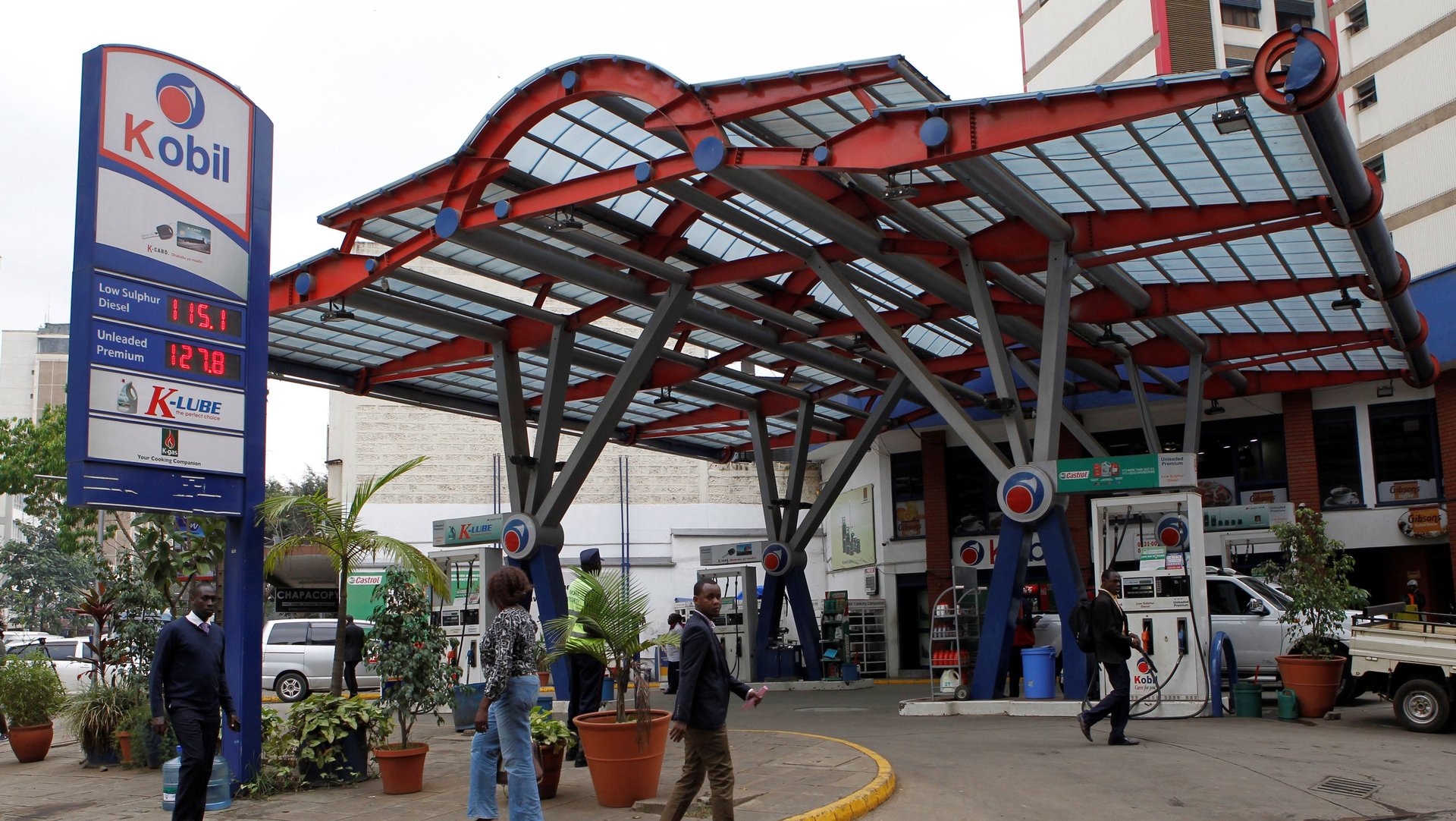Kenya’s fuel tax is hurting its ride-hailing services
Ride-hailing drivers in Kenya say they are feeling the pinch of a surge in fuel prices mandated by the government earlier this month.


Ride-hailing drivers in Kenya say they are feeling the pinch of a surge in fuel prices mandated by the government earlier this month.
Officials at the ministry of finance introduced a 16% value added tax on all petroleum products as part of efforts to raise funds and narrow budget-deficit targets that could endanger a deal with the International Monetary Fund.
The levy has proved controversial, drawing protest from lawmakers, anger among commuters, and led to long lines at gas stations, worries about inflation, besides an industrial strike by fuel distributors and suppliers. A liter of petrol now cost upwards of 127 shillings ($1.20) from the previous 112.
Among ride-hailing services, the directive comes just two months after they ended a strike over meager pay and poor welfare on the job. The walkout happened as competition intensifies among e-hailing companies in the East African nation, and the same pools of drivers look to Uber, Taxify, Little, and a few other firms as a key source of income. And while slashing fares for customers has been welcomed, the reduction of revenue for drivers coupled with high commission fees has led to violent protests.
“It’s been very hard to make ends meet. And now the fuel tax has just made it worse,” Solomon Kimani, a driver who didn’t want the hailing app he was using at the time specified, said.
After the VAT charges came into effect on Sept. 1, Little Cab, which is backed by Kenya’s dominant telecoms company, Safaricom, said it would increase the payments to drivers without charging customers. “Your rate card remains the same for all categories,” CEO Kamal Budhabhatti wrote in an email to riders.
Uber said it was still reviewing its recently-completed study of “driver economics” to better understand pricing. “While we work through the results, we have invested in a 10% fare boost on all uberX and UberSELECT trips until we complete our earnings review,” a spokesperson told Quartz.
The San Francisco-based giant has faced a challenge with its South Africa drivers, who have continuously protested as fuel prices have risen in the past few years. One way they have offset prices there was to cover the incremental cost of filling up a tank if drivers completed a certain number of trips each week.
Taxify, the Estonia-based firm which continues its expansion across Africa, said the 16% levy didn’t impact its drivers’ earnings in Kenya. However, they were “cushioning” the most vulnerable categories, which include its budget option Taxify Go and motorcycle selection Taxify Boda, with a 15% bonus for every trip, East Africa regional general manager Shivachi Muleji told Quartz in an email.